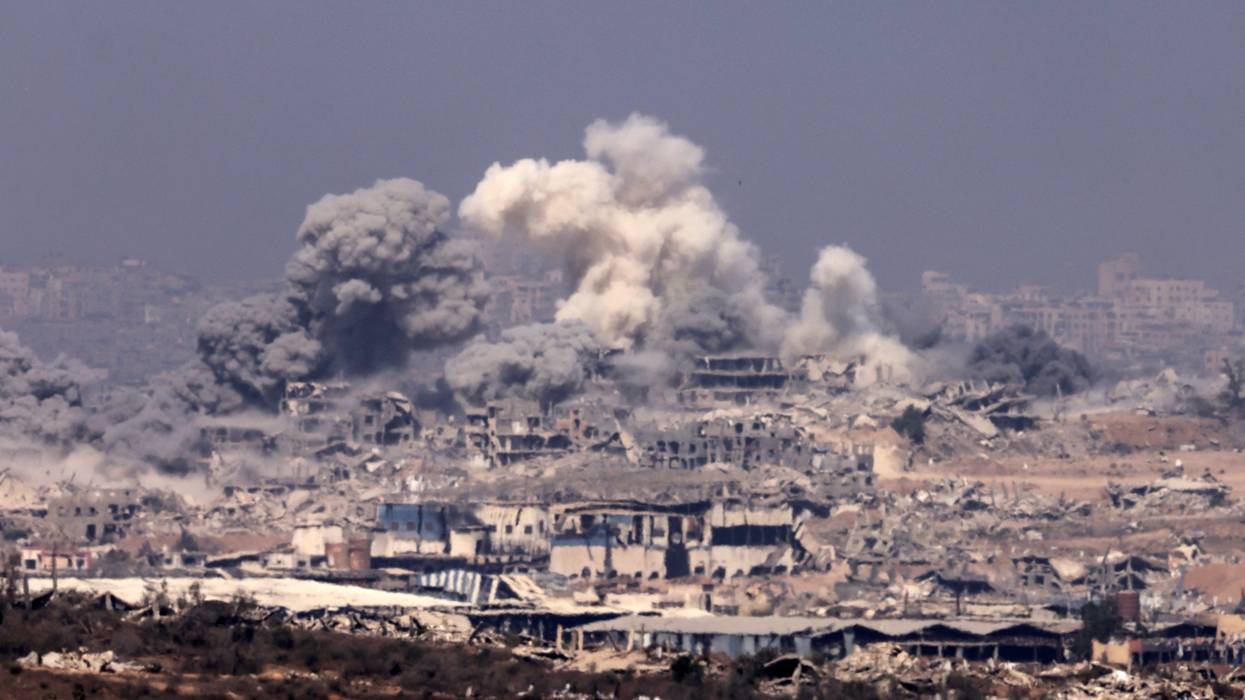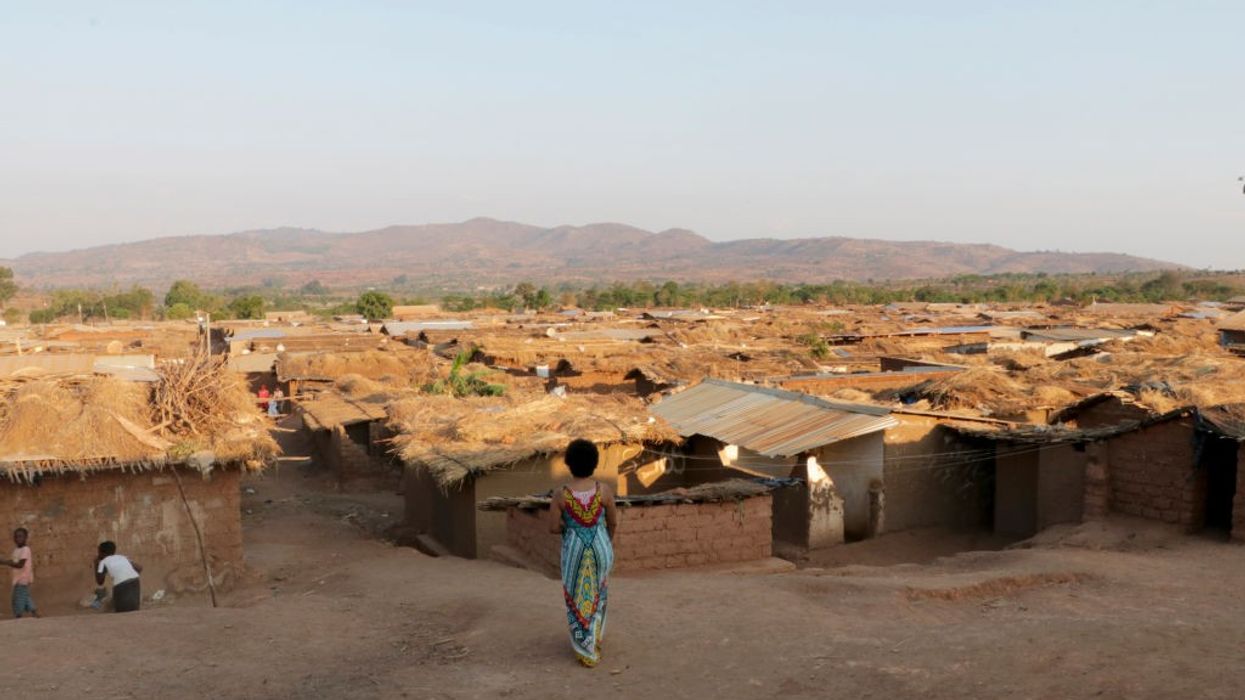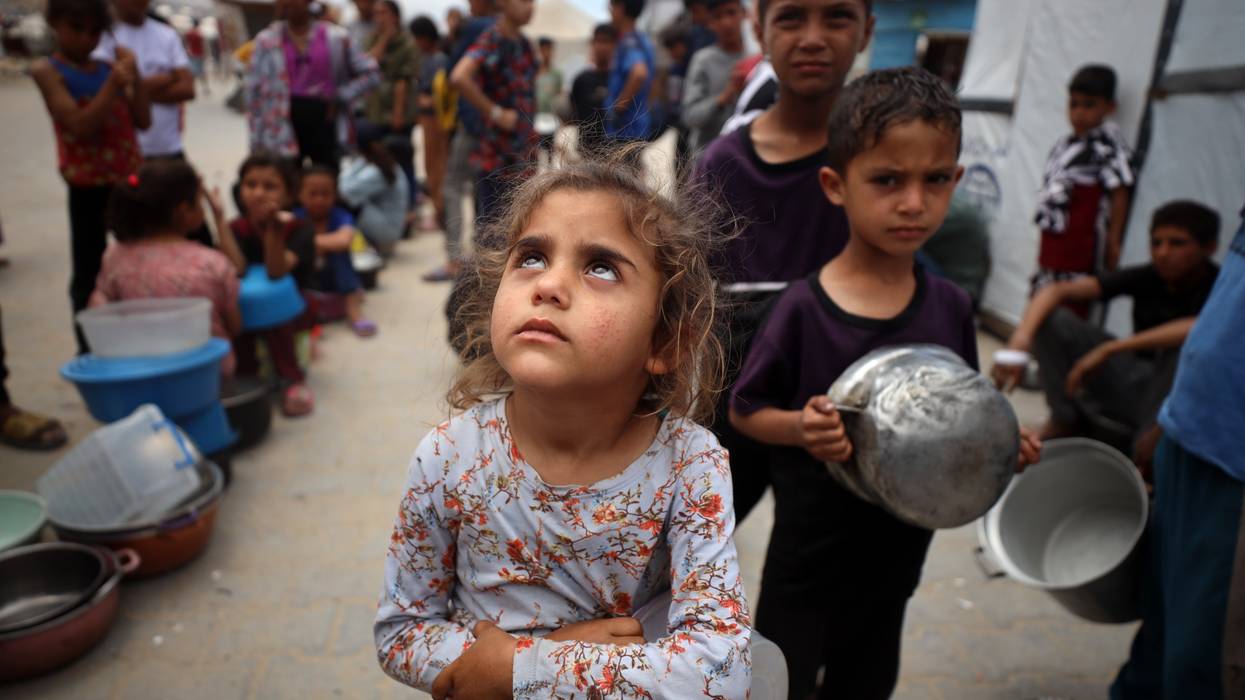'A Cruel and Transparent Farce': Israeli Attacks Kill 62 in Gaza Amid 'Tactical Pause'
"There is nothing humane or tactical about letting a trickle of aid in after a man-made famine has started while continuing to bomb starving men, women, and children, even in so-called safe zones," one advocate said.
The Israeli military began instituting tactical pauses in its assault on certain sections of Gaza on Sunday, as part of a plan to allow what Israeli Prime Minister Benjamin Netanyahu described as "minimal humanitarian supplies" to enter the besieged enclave.
Several humanitarian organizations and political leaders described the Israeli approach as vastly insufficient at best and a dangerous distraction at worst, as Palestinians in Gaza continue to die of starvation that experts say has been deliberately imposed on them by the U.S.-backed Israeli military.
"Deadly airdrops and a trickle of trucks won't undo months of engineered starvation in Gaza," Bushra Khalidi, Oxfam policy lead for the Occupied Palestinian territory, said in a statement on Sunday. "What's needed is the immediate opening of all crossings for full, unhindered, and safe aid delivery across all of Gaza and a permanent cease-fire. Anything less risks being little more than a tactical gesture."
Israel announced a plan to institute a daily 10-hour "tactical pause" in fighting from 10:00 am to 8:00 pm local time in the populated Gaza localities of Gaza City, Deir al-Balah, and Muwasi, as The Associated Press explained.
"These actions are not pauses—they are part of an ongoing genocide that the world must act to stop."
However, on Sunday—the first day of the supposed pause—Israeli attacks killed a total of 62 people, Al Jazeera reported, including 34 who were seeking humanitarian relief. Another six people died of hunger, bringing the total death toll from starvation and malnutrition to 133, including 87 children, according to the Gaza Health Ministry.
"The Israeli government's so-called 'tactical pauses' are a cruel and transparent farce," said Council on American-Islamic Relations (CAIR) national deputy director Edward Ahmed Mitchell in a statement on Sunday. "There is nothing humane or tactical about letting a trickle of aid in after a man-made famine has started while continuing to bomb starving men, women, and children, even in so-called safe zones. These actions are not pauses—they are part of an ongoing genocide that the world must act to stop."
British Foreign Secretary David Lammy, meanwhile, called the pause "essential, but long overdue."
"This announcement alone cannot alleviate the needs of those desperately suffering in Gaza," Lammy said, as The Guardian reported. "We need a cease-fire that can end the war, for hostages to be released, and aid to enter Gaza by land unhindered."
The United Nations' World Food Program posted on social media that it welcomed the news of the pause, as well as the creation of more humanitarian corridors for aid, and that it had enough food supplies either in or en route to the area to feed the entire population of Gaza for nearly three months.
"A man-made hunger can only be addressed by political will."
Since the border crossings opened on May 27 following nearly three months of total siege, WFP has only been able to bring in 22,000 tons of food aid, about a third of the over 62,000 tons of food aid needed to feed the population of Gaza each month.
While it welcomed the pause, WFP did add that "an agreed cease-fire is the only way for humanitarian assistance to reach the entire civilian population in Gaza with critical food supplies in a consistent, predictable, orderly, and safe manner—wherever they are across the Gaza Strip."
Joe English, emergency communications specialist for UNICEF, emphasized that the limited pauses proposed by Israel were not the ideal conditions for treating serious malnutrition.
"This is a short turnaround in terms of the notice that we have, and so we cannot work miracles," English told CNN.
English explained that, while UNICEF can treat malnutrition, children who are malnourished require a course of treatments over an extended period of time in order to fully recover, something only truly possible with a cease-fire, which would allow the U.N. to reestablish the 400 aid distribution points it had set up across Gaza before the last cease-fire ended in March.
"We have to be able to reach people and also to reach people where they are," he said. "We can't be expecting people to continue to traverse many miles, often on foot, through militarized areas, to get access to aid."
In addition to bringing in food aid through trucks, Israel, Jordan, and the United Arab Emirates all began air-dropping aid over the weekend. However, this method has been widely criticized by humanitarian experts as ineffective and even dangerous.
"The planes are insulting for us. We are a people who deserve dignity."
"Airdrops will not reverse the deepening starvation. They are expensive, inefficient, and can even kill starving civilians. It is a distraction and screensmoke," U.N. Relief and Works Agency for Palestinian Refugees in the Near East Commissioner-General Philippe Lazzarini wrote on social media on Saturday.
"A man-made hunger can only be addressed by political will. Lift the siege, open the gates, and guarantee safe movements and dignified access to people in need," Lazzarini wrote.
Palestinians in Gaza also complained about the air drops.
"From 6:00 am until now we didn't eat or drink. We didn't get aid from the trucks. After that, they said that planes will airdrop aid, so we waited for that as well," Massad Ghaban told Reuters. "The planes are insulting for us. We are a people who deserve dignity."
In a reminder of what is at stake in effectively delivering aid to Gaza, the World Health Organization (WHO) warned on Sunday that "malnutrition is on a dangerous trajectory in the Gaza Strip, marked by a spike in deaths in July."
WHO continued:
Of 74 malnutrition-related deaths in 2025, 63 occurred in July—including 24 children under 5, a child over 5, and 38 adults. Most of these people were declared dead on arrival at health facilities or died shortly after, their bodies showing clear signs of severe wasting. The crisis remains entirely preventable. Deliberate blocking and delay of large-scale food, health, and humanitarian aid has cost many lives.
WHO said that the search for lifesaving aid was itself deadly: "Families are being forced to risk their lives for a handful of food, often under dangerous and chaotic conditions. Since 27 May, more than 1,060 people have been killed and 7,200 injured while trying to access food."
Israeli solders have reported that they had been ordered to fire on Palestinian civilians seeking aid.
In the face of Israel's atrocities, CAIR's Mitchell called for decisive action: "No more statements. Our government, Western nations, and Arab Muslim nations must act immediately to end the genocide, allow unfettered humanitarian aid into Gaza, secure the release of all captives and political prisoners, and hold Israeli leaders accountable for war crimes. Every moment of inaction contributes to the unimaginable suffering of everyone in Gaza."


